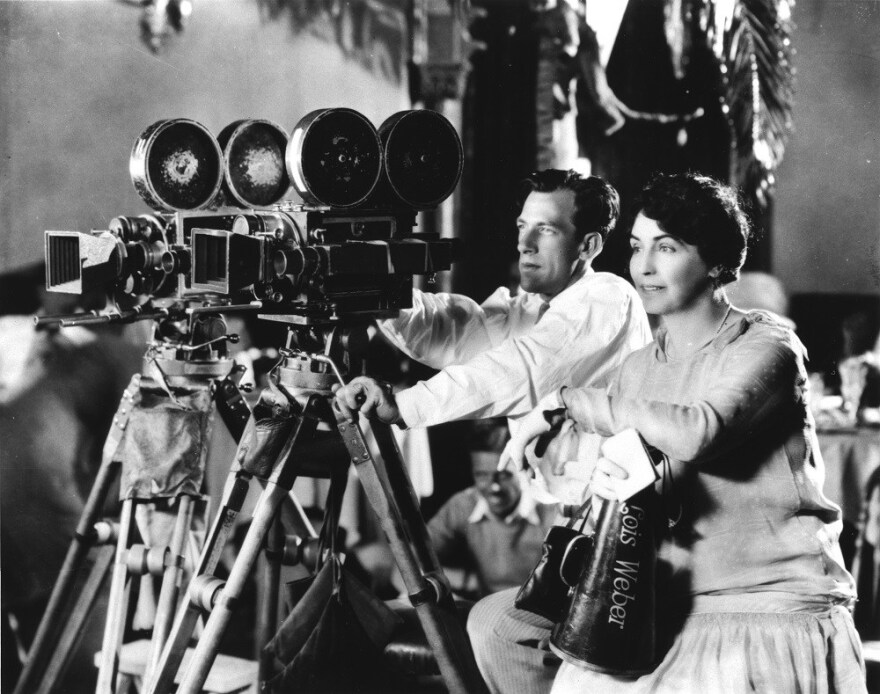The Pennsylvania Historical and Museum Commission will honor Pittsburgh silent film pioneer Lois Weber with a historical marker Thursday. As one of the first female American directors, Weber was known for her early use of new techniques like double exposures and split screens.
Weber grew up on the Northside, formerly Allegheny City, and moved to New York City in 1904, where she would later produce much of her work along with her husband. She worked on over 200 films and founded her own production company in Los Angeles. The marker’s unveiling in front of the Carnegie Library of Pittsburgh Allegheny branch coincides with her 140th birthday.
“She was really very well-known and very well respected in her time, and on par with the names people do remember,” said Lauren Uhl, Heinz History Center curator. “She took her worldview and this new medium and she put them together and she just made magic with them.”
Weber grew up in a devout Christian family and participated in missionary work with the Church Army Workers in her youth. Her social conscience films, which dealt with relevant issues of the time, included “The Hand That Rocks The Cradle” in 1917, which discussed birth control, and “Hop, The Devil’s Brew” in 1916, which focused on drug abuse.
Her work showed off methods using the latest technology of the time. Her 1913 film “Suspense”, which will be screened at the History Center, pioneered a split screen technique. She also was one of the first filmmakers to experiment with sound.
Since she grew up along with a burgeoning film industry, Weber was most respected by other filmmakers. According to Uhl, when she was at her height of popularity, she didn’t face as many obstacles due to her gender, though she did fight against censorship rules.
“She’s an interesting character to me because her persona was this sort of married matron, a responsible respectable Edwardian woman,” said Uhl. “But at the same time, she’s doing these really progressive, thoughtful films. She is not one-dimensional, and she tried to make her films that way too—she wanted them to be complex and thoughtful, and I think that was a reflection of her personality.”
After the unveiling, film historian Shelley Stamp and actor Illeana Douglas will host a conversation at the Heinz History Center about film history and Weber’s legacy.












